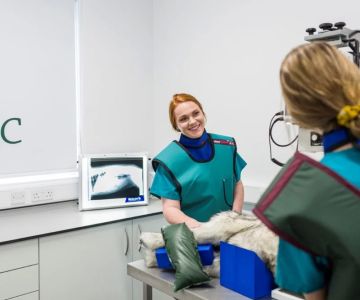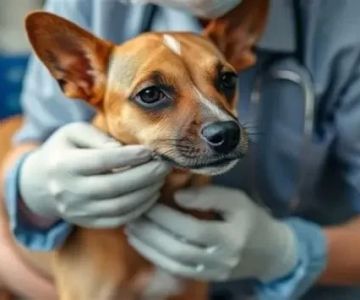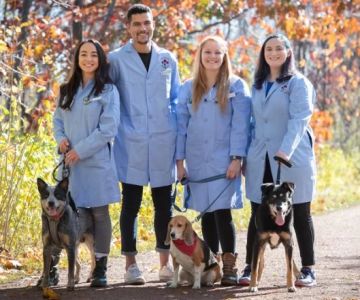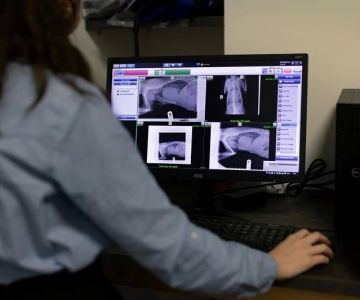- 1-What-Does-A-Veterinarian-Do
- 2-Essential-Veterinary-Responsibilities
- 3-Education-And-Training-Required-For-Veterinarians
- 4-Common-Specialties-And-Care-Areas
- 5-Veterinarian-Influence-On-Public-And-Animal-Health
- 6-Why-Consult-A-Veterinarian-For-Your-Pet
- 7-Career-Opportunities-And-Future-Trends
1. What Does a Veterinarian Do?
At its core, the question "what does a veterinarian do?" involves understanding a professional who is dedicated to diagnosing, treating, and preventing illnesses and injuries in animals. Veterinarians provide medical care for a wide variety of animals, ranging from household pets like cats and dogs to livestock and even exotic wildlife.
Beyond routine check-ups and vaccinations, veterinarians play a critical role in animal surgery, dental care, and emergency interventions. Their expertise ensures animals live healthier, happier lives. Additionally, veterinarians often serve as educators, informing pet owners about nutrition, hygiene, and disease prevention.
2. Essential Veterinary Responsibilities
Veterinarians’ responsibilities extend far beyond treating sick animals. They conduct physical examinations, perform diagnostic tests such as blood work and x-rays, and develop treatment plans tailored to each animal’s needs. Vaccination administration to prevent diseases is a routine yet vital part of their work.
Some veterinarians specialize in surgery, repairing fractures or performing spaying and neutering procedures. Others focus on preventive medicine, advising owners on diet and exercise to maintain optimal health. Veterinarians also play a crucial role in controlling zoonotic diseases that can transfer from animals to humans, highlighting their public health importance.
3. Education and Training Required for Veterinarians
Becoming a veterinarian demands rigorous education and training. After completing undergraduate studies focusing on sciences such as biology and chemistry, aspiring veterinarians attend veterinary school, earning a Doctor of Veterinary Medicine (DVM) degree. This program typically lasts four years and combines classroom learning with hands-on clinical experience.
Licensing exams follow graduation, required to practice legally. Many veterinarians pursue internships or residencies to specialize further in fields such as surgery, dermatology, or cardiology. Continuous education is essential due to the evolving nature of veterinary medicine, ensuring practitioners remain up to date with the latest advances.
4. Common Specialties and Care Areas
Veterinary medicine encompasses numerous specialties. Some veterinarians focus on small animals, primarily pets, while others specialize in large animals such as horses and cattle. Exotic animal veterinarians care for wildlife and unusual pets like reptiles or birds.
Additional specialties include internal medicine, oncology, dermatology, and emergency and critical care. This variety allows veterinarians to match their skills with their interests and meet diverse animal health needs. Many also work in research, contributing to vaccine development and disease prevention.
5. Veterinarian Influence on Public and Animal Health
Veterinarians do more than treat animals; they impact public health by managing diseases that could affect humans. Monitoring food animals ensures safe consumption and prevents outbreaks of foodborne illnesses. Their work in wildlife health also aids in ecosystem preservation and disease control.
Public awareness campaigns often involve veterinarians educating communities on responsible pet ownership and preventing animal cruelty. Their role in surveillance for infectious diseases has been highlighted during pandemics, reinforcing their critical place in society.
6. Why Consult a Veterinarian for Your Pet
Consulting a veterinarian is essential for maintaining your pet’s health and wellbeing. Regular veterinary visits help detect problems early, preventing more serious conditions. Veterinarians tailor advice on diet, exercise, and behavior to ensure your pet thrives in its environment.
For emergencies or chronic diseases, their expertise is indispensable in providing proper treatment. Choosing a trusted veterinarian means securing compassionate, knowledgeable care that supports your pet’s longevity and happiness.
7. Career Opportunities and Future Trends
The veterinary field offers diverse career paths, including clinical practice, research, public health, and education. Technological advances like telemedicine and advanced imaging are expanding treatment options, making veterinary care more accessible and effective.
Future veterinarians will likely engage more with preventive medicine and wellness programs, focusing on improving quality of life for animals and their owners. Environmental and wildlife conservation efforts will continue to offer unique roles for veterinarians passionate about ecological balance.
Understanding what does a veterinarian do reveals a rewarding profession dedicated to animal welfare and public health. Whether you are a pet owner seeking the best care or considering a veterinary career, exploring this field can offer meaningful impact and personal fulfillment.
For premium veterinary care products, advice, or professional services, consider visiting ESPLawyers to connect with the best resources tailored for animal health and owner support.











